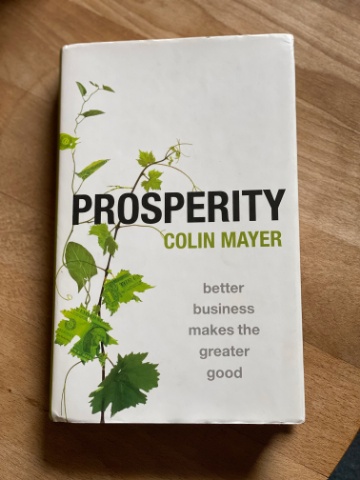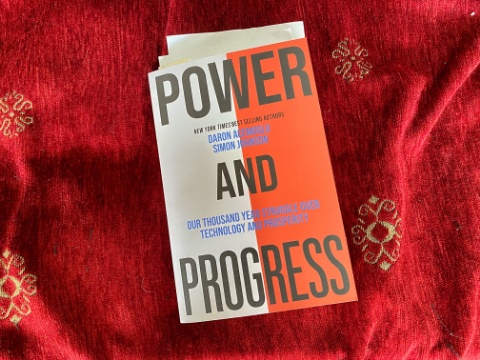Tulip mania
My favourite flowers at this time of year.
Quote of the Day
I used to think the interesting question was whether we should have a monarchy or not. But now I think that question is rather like, should we have pandas or not?’
- Hilary Mantel
Musical alternative to the morning’s radio news
Richard Strauss | Metamorphosen | Herbert von Karajan with the Berlin Philharmonic
Gosh, this is wonderful. Like Wagner without the racket, as Thomas Beecham might have said. Thanks to John Seeley for suggesting it.
Long Read of the Day
The ‘Don’t Look Up’ Thinking That Could Doom Us With AI
An essay by Max Tegmark, who thinks we should be thinking harder about the risks of AGI.
Suppose a large inbound asteroid were discovered, and we learned that half of all astronomers gave it at least 10% chance of causing human extinction, just as a similar asteroid exterminated the dinosaurs about 66 million years ago. Since we have such a long history of thinking about this threat and what to do about it, from scientific conferences to Hollywood blockbusters, you might expect humanity to shift into high gear with a deflection mission to steer it in a safer direction.
Sadly, I now feel that we’re living the movie “Don’t look up” for another existential threat: unaligned superintelligence. We may soon have to share our planet with more intelligent “minds” that care less about us than we cared about mammoths. A recent survey showed that half of AI researchers give AI at least 10% chance of causing human extinction. Since we have such a long history of thinking about this threat and what to do about it, from scientific conferences to Hollywood blockbusters, you might expect that humanity would shift into high gear with a mission to steer AI in a safer direction than out-of-control superintelligence. Think again: instead, the most influential responses have been a combination of denial, mockery, and resignation so darkly comical that it’s deserving of an Oscar…
Vividly written and interesting because Tegmark is a physicist at MIT, a cosmologist and machine learning researcher. He is president of the Future of Life Institute, an outfit whose mission is to reduce global catastrophic and existential risk from powerful technologies, and the author of Life 3.0: Being Human in the Age of Artificial Intelligence.
Books, etc.
Colin Meyer’s book was published in 2018, and I’m mortified that it has taken me this long to catch up with it. Why? Because it provides a powerful refutation of Milton Friedman’s pernicious mantra that the only purpose of a public company is to maximise profit (or shareholder value, as others put it.) This overarching corporate imperative is one of the forces that is making contemporary capitalism so pernicious and dangerous for humanity.
My Commonplace booklet
I came across this in a watch catalogue. It’s about the watch JFK was wearing when he was murdered — an Omega Ultra Thin given to him in 1960 by Senator Grant Stockdale of Florida, an early supporter of Kennedy’s presidential ambitions. When JFK was inaugurated as President on January 20, 1961, he was wearing the watch. Compared to the male jewellery which features in every edition of the Weekend Financial Times, it’s diminutive and powered by a simple hand-wound spring movement.
After Kennedy’s assassination, the watch wound up (sic) in a private collection until in 2005 it was bought by Omega for $350,000 and is now in the company’s collection of historic timepieces.
Stockdale’s gift may have been a shrewd one. JFK appointed Stockdale US ambassador to Ireland!
Interesting what you find in catalogues.
This Blog is also available as a daily email. If you think that might suit you better, why not subscribe? One email a day, Monday through Friday, delivered to your inbox. It’s free, and you can always unsubscribe if you conclude your inbox is full enough already!

















